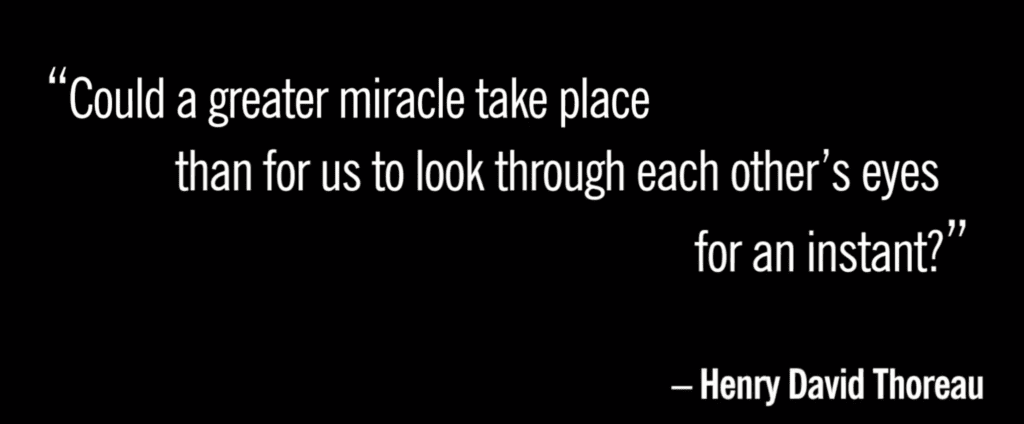Sometimes we don’t see the bigger picture. We can be very near-sighted in our ministries, focusing on what we do. Sometimes we only see the obvious need, the bleeding that has to be stopped. Yet we are called to bring good news to a person, the whole person, not just “the appendix in bed 404B.”
Holistic healing presupposes looking through the eyes of another and seeing what they see… with a fresh pair of eyes. With fresh eyes often we will see a person trapped in a system that even they may have difficulty seeing. We need to help them see themselves in a new way that gives hope.
As I watched this brief video on EMPATHY from the Cleveland Clinic my mind made multiple connections. This brief reflection concerns a connection I initially did not see. The connection between empathy and our efforts at fostering and enabling systemic change.
So often we rush past deeper needs without seeing the person. We make our unconscious assumptions about what this person is facing and what needs to be done.
What would happen if, seeing other persons, we entered into their world?
If you could stand in someone else’s shoes… hear what they hear… see what they see… feel what they feel…
- Would we treat them differently?
- Would we be able to help them to see something they can not yet see?
Certainly, patient care, in fact, all pastoral ministry in any setting, is more than just healing the immediate and obvious issue — it’s building a connection that encompasses mind, body, and soul.
Making wider and deeper connections.
But what happens when we make the connections with the lens of systemic change?
We see that each person lives within a system, actually many systems. Too often we focus on the necessary first aid. We fail to see the bigger picture.
Systemic change focuses on designing projects that have a holistic vision, addressing a series of basic human needs of this person – individual and social, spiritual and physical, especially jobs, health care, housing, education, spiritual growth – with an integral approach toward self-help, sustainable development, and the training of local leaders.
These are all needs that too often we walk right past and do not see.
An exercise in seeing
I suggest a simple exercise in seeing. It is a variation of sitting in a public park and looking at people as they walk by. But this time, it is an exercise in empathy.
- What might each individual be struggling with that I do not see at first?
- What might you see that they cannot yet see?
- What systems are they trapped in?
- What would help them see something that would give them hope of breaking the cycle?
They key to systemic change is in empathy… first seeing the world through their eyes. Then seeing through the lens of what gives hope.








0 Comments